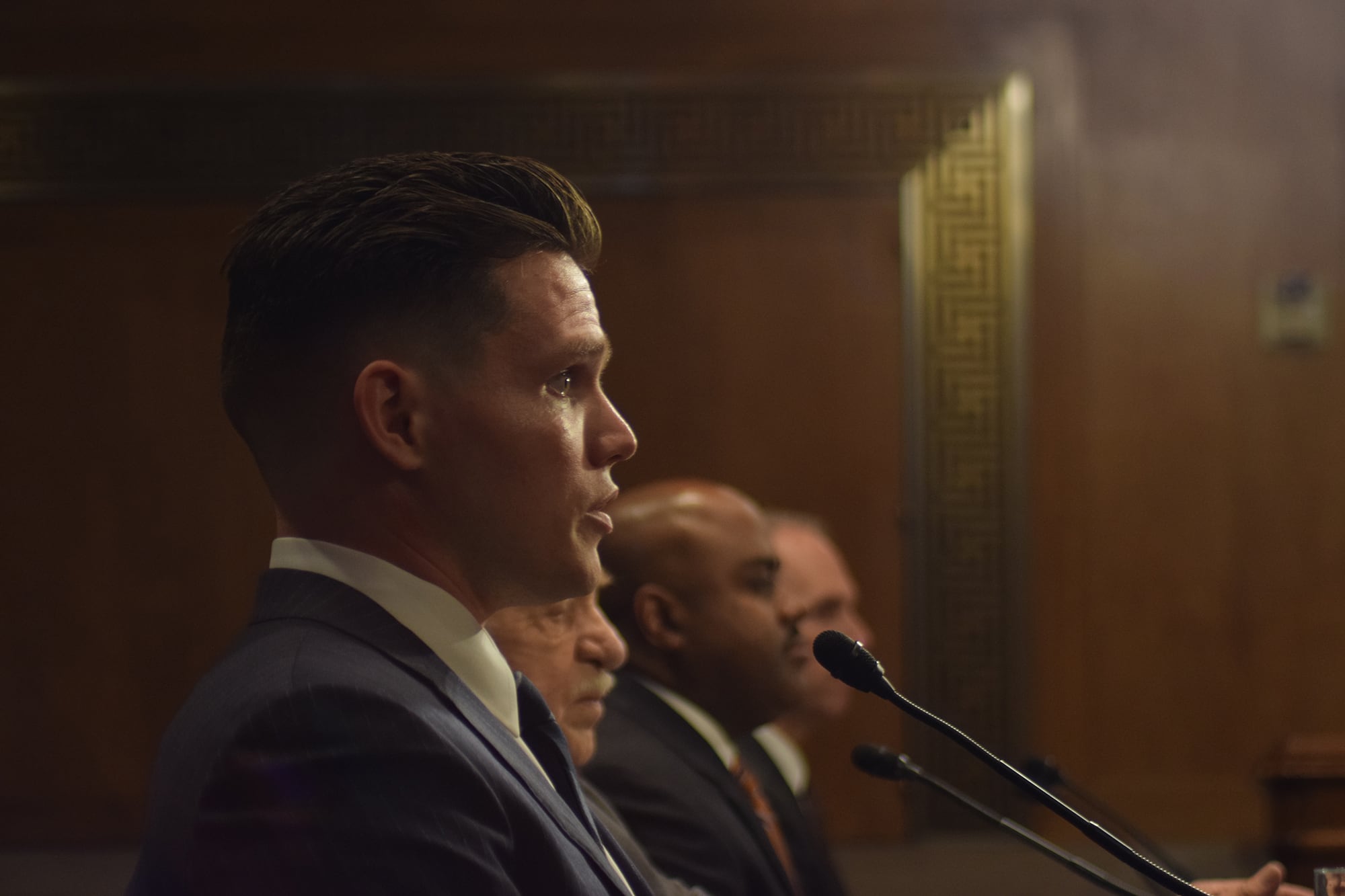Social media platforms are developing new tools to improve transparency and eliminate fraudulent accounts, but they must do more to protect users, including service members and veterans, from scams, fake news and foreign interference, advocates and lawmakers said Wednesday.
In a House Veterans Affairs Committee hearing about the exploitation of veterans on Facebook, Twitter and other social media platforms, advocates said the companies aren’t doing enough to stop the spread of online disinformation, financial fraud and political manipulation.
Instead, said Kristofer Goldsmith, associate director for policy and government affairs at Vietnam Veterans of America, they continue relying heavily on organizations and individual users to track their identities and watch for disinformation, much as he did when he uncovered misuse of his organization’s logo across Facebook pages and websites.
“In reporting abusive content [to Facebook] without information being shared by both parties, VVA was essentially acting as an unpaid consultant for Facebook,” said Goldsmith, who published a 191-page report, “An Investigation into Foreign Entities Who are Targeting Service Members and Veterans Online” in September.
RELATED

Two years ago, Goldsmith found a Facebook page bearing VVA’s logo and name that originated in Europe and was misrepresenting old news stories, stirring controversy on subjects important to veterans, such as health and benefits.
He complained to Facebook but the page wasn’t taken down until company executives were asked about it during a congressional hearing. Goldsmith later found other impostor pages and websites with content designed to provoke veterans.
On another site, Macedonian criminals tricked followers of a veterans page supporting President Donald Trump to send campaign donations to a Paypal account overseas. On Twitter, he uncovered a bot network that follows veterans advocates, obtains its own followers and then sends them suspicious links.
“These impostors were, and still are, using the name of our and brand of our congressionally chartered veterans service organization to spread actual fake news that is meant to inflame national divisions,” Goldsmith said.
The major social media platforms expanded their security efforts and began a crackdown on bogus Facebook pages and fake Twitter handles following the discovery of Russian efforts to manipulate the 2016 election.
Officials told lawmakers during the hearing that they continue improving their platforms, increasing transparency, improving technology and hiring additional content specialists and security personnel.
Facebook is testing a new detection capability to identify and remove accounts that impersonate U.S. military members and veterans, and is training its automated systems to identify fraudulent accounts, said Nathaniel Gleicher, the company’s head of security policy.
Since the beginning of this quarter, Facebook’s automated systems have deleted 1.7 billion false accounts “mostly before anyone sees them,” Gleicher said.
Twitter also has launched a number of initiatives to cut down on misuse. It is developing a new policy on bots and other types of “synthetic media,” including manipulated media and “deep fakes.” And it has banned paid political advertising and prohibits scam tactics.
“We want Twitter to be a place where people can make human connections and find reliable information,” said Twitter Public Policy Manager Kevin Kane.
Goldsmith said his organization has also contacted the Defense and Veterans Affairs Departments to encourage them to be more proactive in educating troops and veterans about the risks of social media but has received no response.
On Monday, Senate Democrats sent letters to VA Secretary Robert Wilkie and Defense Secretary Mark Esper expressing concern that China is using platforms such as LinkedIn to recruit spies and other foreign actors are using it to interfere with next year’s presidential election.
The senators want to know what the departments are doing to teach service members and veterans on detecting malicious activity and preventing fraud.
Of the 20 senators who signed the letter, four are running for president — Sens. Amy Klobuchar, D-Minn., Kamala Harris, D-Calif., Bernie Sanders, I-Vt., and Elizabeth Warren, D-Mass.
“We write to inquire about the current efforts by the Department of Defense to educate service members and DoD civilian employees about online disinformation campaigns and other malign influence operations by Russian, Chinese, and other foreign entities and individuals,” they wrote.
During the hearing, Rep. Mark Takano, D-Calif., chairman of the committee noted that law enforcement has a role in seeking out perpetrators of fraud, and he plans to have a closed hearing with the Federal Bureau of Investigation to discuss the online targeting of veterans and service members.
Veterans are especially vulnerable, he added, because they are a trusted population that many look to for informed opinions.
“That esteemed trust in our veterans is now being hijacked by foreign impostors online and used to spread harmful disinformation, political propaganda, and fake news. Foreign actors are stealing veterans’ voices and images in order to influence political opinions heading into an election year,” Takano said. “Let me be clear: this issue has nothing to do with censoring certain political views, or removing content based on partisan bias — this is about impersonation and stealing veteran’s voices.”
Rep. Phil Roe, R-Tenn., the committee’s ranking Republican, praised the concept of social media, which allows him to see photos of his 2-year-old granddaughter, but also provides a platform for constituents to say that he’s “dumber than a flat rock.”
“You have a very difficult job … I would always encourage you to err on the side of free speech. That’s one of the great things about American is our ability to say want we want,” Roe said.
Patricia Kime is a senior writer covering military and veterans health care, medicine and personnel issues.





